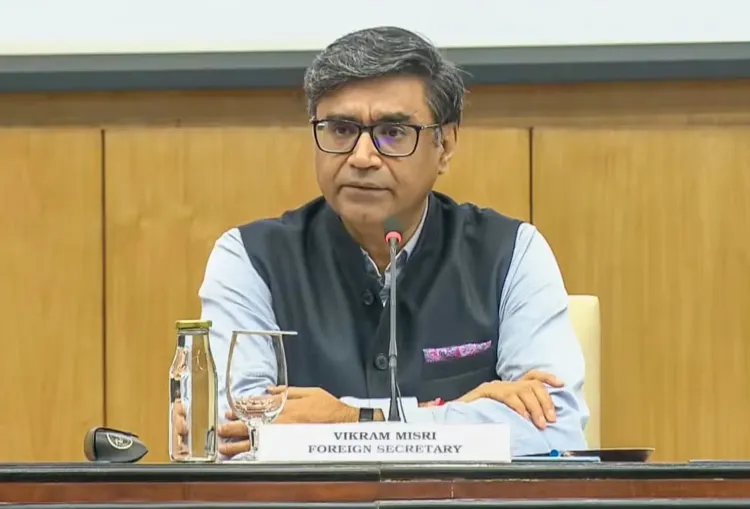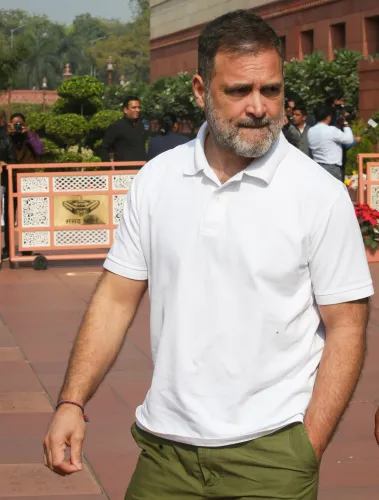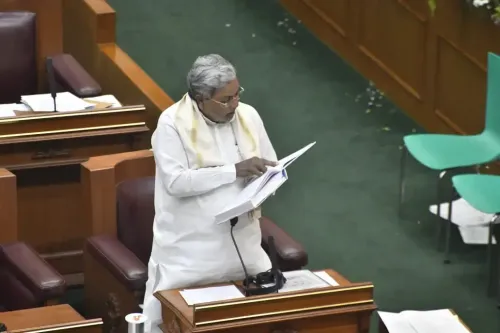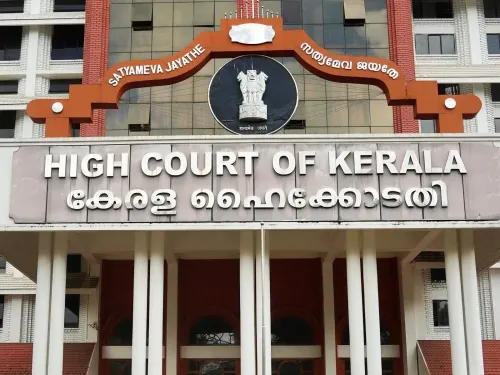Why is FS Misri Criticizing Pakistan’s Joint Probe Proposal?

Synopsis
Key Takeaways
- Operation Sindoor Outreach aims to expose Pakistan's terrorism links.
- 59 Members of Parliament will engage with 33 countries.
- Misri rejects Pakistan's joint probe offer, emphasizing accountability.
- Delegations are equipped with intelligence on Pakistan's terror activities.
- The campaign conveys a message of global solidarity against terrorism.
New Delhi, May 20 (NationPress) In a bold diplomatic initiative following ‘Operation Sindoor’, India has launched a groundbreaking global campaign to unveil Pakistan’s direct and indirect connections to terrorism. Under the initiative titled "Operation Sindoor Outreach", seven high-level delegations consisting of 59 Members of Parliament, including former ministers, experienced diplomats, and prominent political figures, are scheduled to visit 33 nations from May 21 to June 5.
This initiative, led by the Ministry of External Affairs (MEA), marks a pioneering multi-party foreign engagement strategy aimed at presenting a consolidated national stance against terrorism while seeking to internationally isolate Pakistan for its ongoing support and harboring of terror networks.
On Tuesday, Foreign Secretary Vikram Misri conducted comprehensive briefings for three of the seven delegations. Sources indicate that Misri clearly articulated India’s stance: "India has endured cross-border terrorism for over four decades. We have adopted a new normal in countering such activities. There is no room for ambiguity or appeasement."
In response to Pakistan’s proposition for a joint investigation into the recent attack in Pahalgam, Misri firmly dismissed the notion. "Requesting Pakistan to co-investigate terror attacks on Indian soil is akin to asking the thief to probe his own crimes."
Each delegation is armed with confidential dossiers and intelligence materials that outline the role of Pakistan’s military and ISI in perpetuating terrorism, including direct evidence from Operation Sindoor, which recently targeted terror launchpads across the Line of Control (LoC).
The MPs, with the support of senior Indian diplomats, will interact with foreign governments, parliamentarians, media, civil society, the Indian diaspora, and international organizations, including the United Nations. They are expected to present firsthand accounts and documented evidence of Pakistan’s terror infrastructure, including its support for groups like LeT, JeM, and its harboring of global terror fugitives.
The campaign spans strategic capitals — from Tokyo to Washington, Brussels to Jakarta — and aims to convey a simple yet urgent message: "Terrorism anywhere is a threat to peace everywhere, and India will not stand alone in this fight."
By incorporating opposition leaders and regional party MPs alongside ruling party members, the government aims to reinforce the message that India’s stance against terrorism is bipartisan, national, and non-negotiable.
Operation Sindoor Outreach symbolizes not just India’s diplomatic determination but also serves as a global message — that safe havens for terrorists must be eradicated, and those who harbor them must face accountability.










